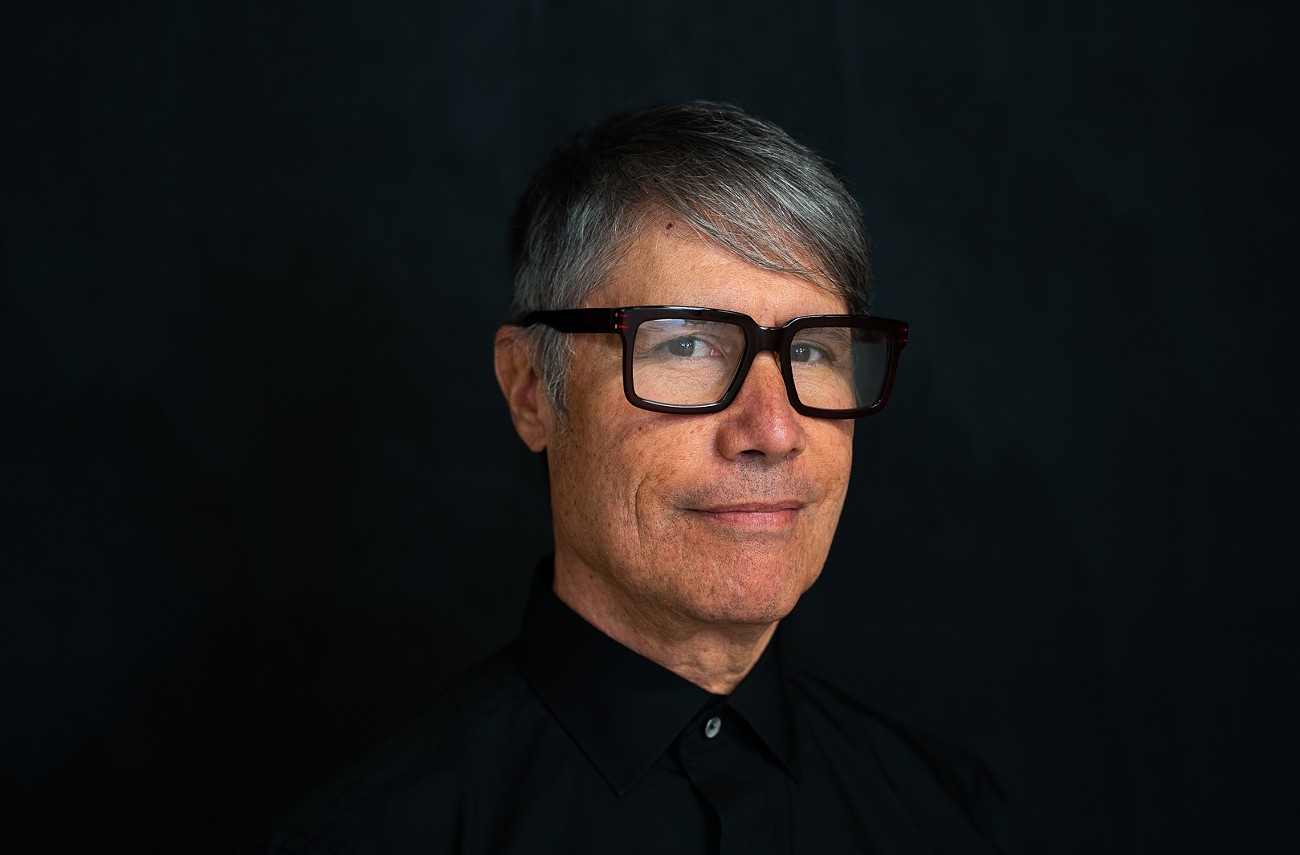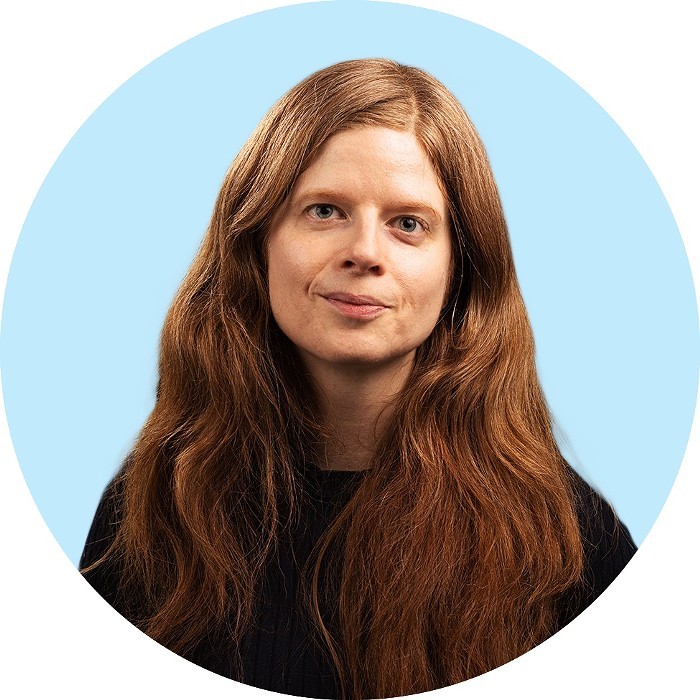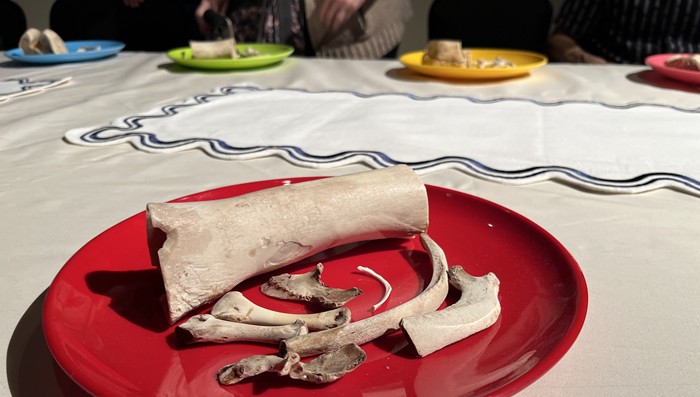One of the city's most important arts institutions Portland Institute for Contemporary Art (PICA) announced last week that it has hired a new executive director to lead its innovative organization. Likely best known to you for its annual TBA festival, PICA is a local stronghold of weird yet approachable performance and conceptual works. Now, its six-month search comes to a close with a name and face familiar to many in the Portland arts scene and at PICA in particular: Reuben Roqueñi.
Roqueñi's hire seems likely to engender confidence in any who looked at the transition with trepidation. From 2012-2014 he served on PICA's board and has maintained a steadfast interest in its projects. He possesses an impressive background in arts admin, most recently as Director of Transformative Change Programs at the Native Arts and Cultures Foundation (NACF), a position he occupied for five years. During that time, he also served as president of the board for MAP Fund, a national funding source for new performance works.
The outgoing director, Victoria Frey, has both steered the experimental arts organization for the past 20 years—taking over from founder Kristy Edmunds in 2004—and been a board member since PICA was founded in 1995. Roqueñi will be only the third executive director in PICA's history.
The Mercury sat down remotely with Frey and Roqueñi to discuss the upcoming transition, what drew Roqueñi to PICA in the first place, and why it's such a special arts institution.
This interview has been edited and condensed for clarity.
MERCURY: Reuben, you were on PICA's board for several years. What did you do in that capacity?
REUBEN ROQUEIÑI: I started as a volunteer before I became a board member, running the door and shuttling artwork from one place to another. My service on the board wasn't that much different. It speaks to the nature of PICA being a place where people can come get their hands dirty and participate in something that is bringing these amazing artists to our community.
What drew you to PICA in the first place?
ROQUEIÑI: An interest in innovative and experimental arts practices, coming from artists all around the world, talking about social change on many levels. PICA was a place where I found a voice for my aesthetic longings and my community longings. In a place where I was initially a stranger, I found community.
Was there a moment or a particular performance that drew you in?
ROQUEIÑI: I do have one of those moments that I'll always remember. It was a Nora Chipaumire piece that I found profound on a number of levels. Just an amazing piece—visceral… I'm having a hard time coming up with adjectives for the work. I was so moved by it that I dove into an interest in performing arts. I think PICA really changed my life, in that way.
What kinds of programming are needed at PICA, looking forward?
ROQUEIÑI: I was just thinking of that question before I showed up here. I don't know that PICA needs anything or that it needs to change. I'm not here to change anything. I'm here to listen and hear from the community about what it thinks PICA could evolve into.
This organization does so many amazing things: There's the festival, the shows, our incredible building, the programming we plan throughout the year. Yes, Vic is leaving, but she's not leaving behind a sinking ship. PICA's great where it's at, and I'm lucky to inherit something of this magnitude. I'm here to act as a guide and a steward into a new world. The world is changing all around us. Politicking around us is urgent, and asking its institutions to participate more fully. If I am here to do anything with PICA it is to act as that listener and as a conduit between the organization and the greater community.
So, if there aren't criticisms, what does PICA do well?
ROQUEIÑI: What PICA does well is support the artists it works with. Through commissioning, through small grant-making programs, through professional development training, and—of course—through the presenting of the art.
Either of you can respond to this. What is PICA's purpose in Portland's arts scene?
VICTORIA FREY: I think what Reuben hit on just now is important: exhibiting and supporting the practice of artists. As a contemporary non-collecting institution, we're really artist-centric—focused on what artists need and want to make now. And we really help them make it, occasionally even fabricating it with them. We're picking artists and staying with them for very long periods of time. There are different periods of an artist's career, so if you look at some people we've presented, they started in a residency or exchange lab and just continued to grow. We plant the seed by saying: We believe in you. What do you need or want? How do we help you get there?
ROQUEIÑI: Vic is right on the nose with that. I think too—in terms of the organization's place within the community—PICA is a place where people can come to be challenged about what their notions of art are to begin with. We're hearing the voices of artists from all around the country, all around the world, all different backgrounds. Our hope is that the artists are pushing on the edges of things, asking questions of those in power, challenging our ways of seeing the world, its creation of work, presentation of work, and the dialogue around what this all means.
It's interesting that you say that. PICA makes some of the most out-there work in Portland, but it's simultaneously more approachable than most art.
FREY: We don't kick everyone out and close the doors after curtain. We're building all kinds of opportunities for people to have discussions pre and post. A lot of the stuff we do is about coming together to have discussions—not just sitting and watching something.
During the pandemic, PICA came out strongly to support artists. Was that a change or has that always been the focus?
FREY: It's always been the mission; it was just amplified during the pandemic because it wasn't overshadowed by presenting. We did double down. We did say: Okay, artists need core support. All you need is money—to live, to do, to make. It made it more visible, and it made us declare it more publicly, but it's always been there.
Reuben, I read that you have an artistic practice in multimedia. I wondered if you still do it, and what you could tell me about it?
ROQUEIÑI: I wouldn't say that I'm an exhibiting artist or participating in the arts world in that way. I really don't have much to say about my personal practice, but I am a visual artist and I play guitar. I went to art school, and I did a lot of work in my community: public works, works with kids, street art, I worked in a tattoo and piercing shop for a while. I am a maker of things at home. [Roqueñi shifts in his seat to gesture behind him.] Look, here's my workbench.
Victoria, are you staying on at PICA in any capacity?
FREY: Right now I'm bi-coastal. When I decided that I was leaving PICA, I was a little bit worried about what I was gonna do, so I ended up taking a contract [on the East Coast] before we finished succession planning. I'm staying on in the capacity of onboarding Reuben and making sure that the transition is successful. I've agreed to do anything that's necessary. He can kick me out when he wants [laughs].
The upcoming PICA Prom is sort of a goodbye party for you, Victoria. Is there anything about it particularly indicative of your tenure?
FREY: It wasn't designed by me. It was designed by Leslie Vigeant and the development team, but it's an opportunity—it's a hello and goodbye. Kristy Edmunds, our founder, is coming out for it. There is a program in that the prom is expressing where we've come, where we are, and where we're headed. It will be the first opportunity to see Reuben in this new role. It's saying goodbye to me, and hello to Reuben.
Champagne Wishes & Grunge Dreams: PICA Prom (1995 ed.) takes place at PICA, 15 NE Hancock, Sat May 20, 5:30 pm-10 pm, $250+, 21+




















